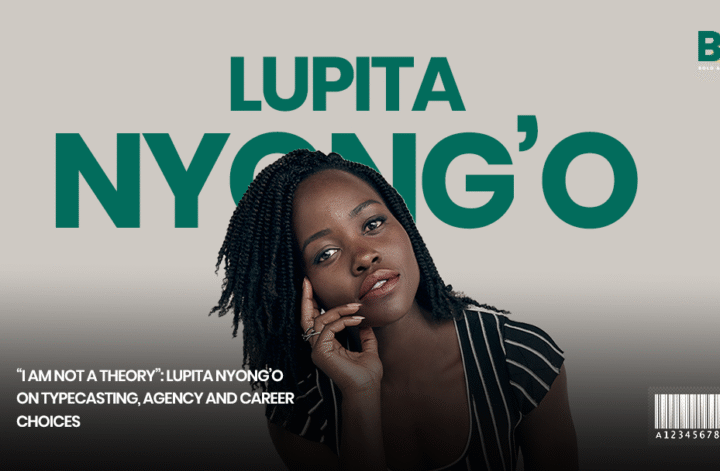Lupita Nyong’o said she received offers to play enslaved women even after winning the Academy Award for Best Supporting Actress in 2014 for 12 Years a Slave. She described being pitched roles that recycled trauma and racial shorthand, including suggestions that she appear on a slave ship. Nyong’o said she had to “deafen” herself to commentators who framed her as a symbol rather than a person, and she made deliberate choices to protect the shape of her career and the stories she would be part of.
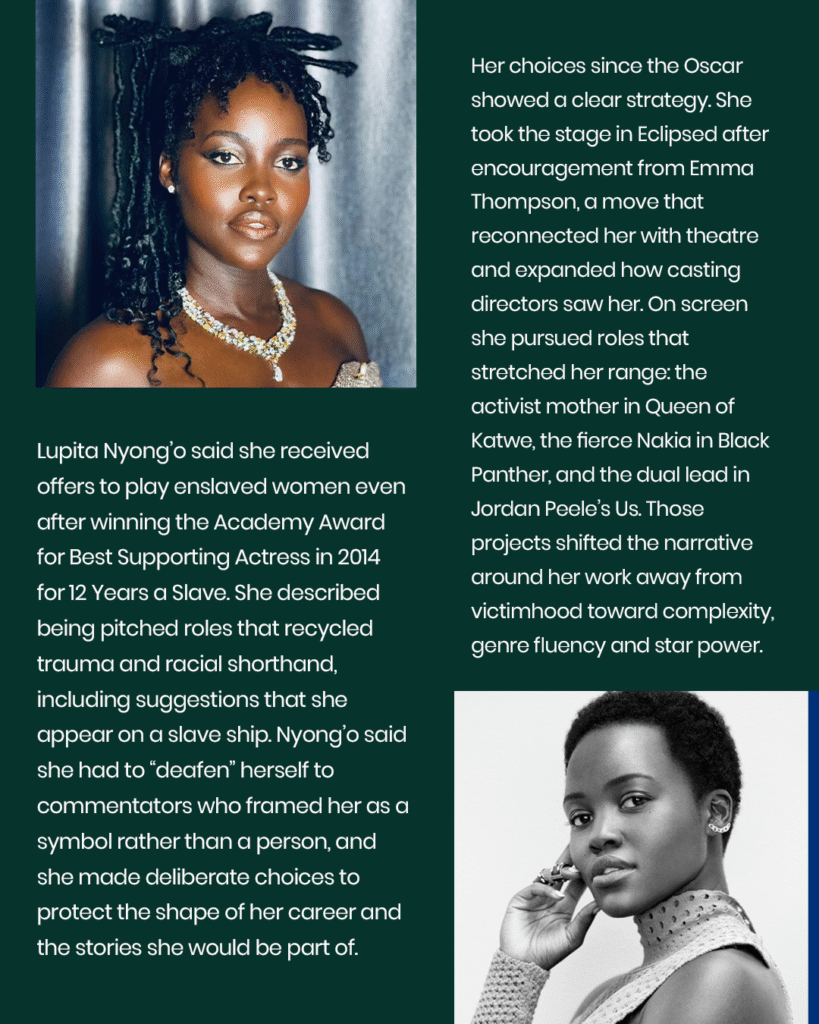
Her choices since the Oscar showed a clear strategy. She took the stage in Eclipsed after encouragement from Emma Thompson, a move that reconnected her with theatre and expanded how casting directors saw her. On screen she pursued roles that stretched her range: the activist mother in Queen of Katwe, the fierce Nakia in Black Panther, and the dual lead in Jordan Peele’s Us. Those projects shifted the narrative around her work away from victimhood toward complexity, genre fluency and star power.

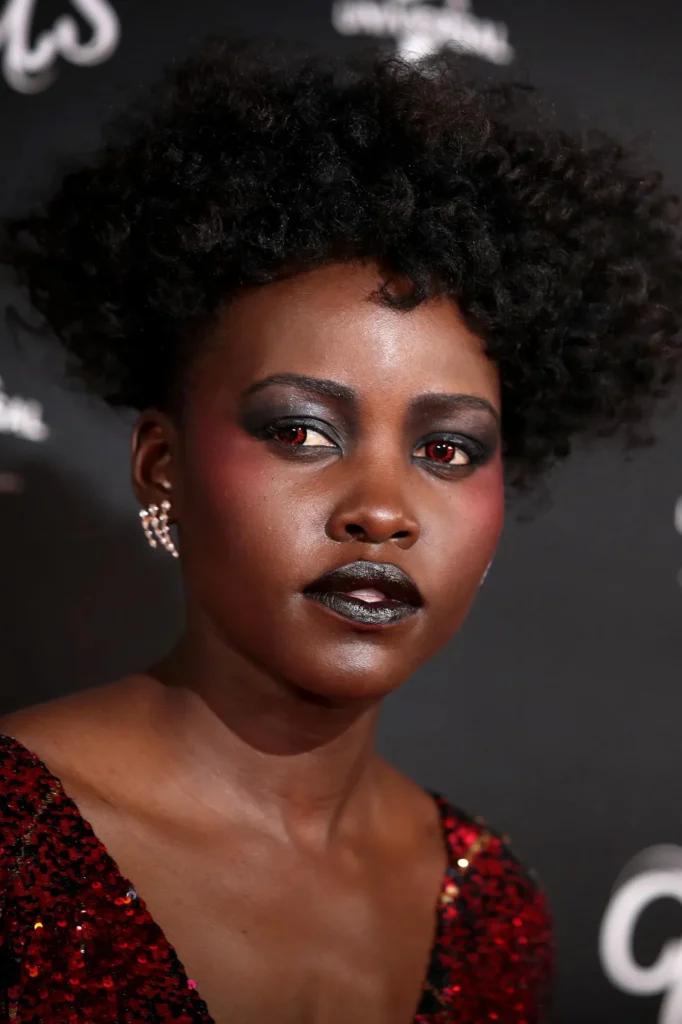
Nyong’o’s remarks also pointed to an industry problem that affects actors of colour broadly. Typecasting reduces career options and narrows the kinds of African stories that reach global audiences. When she insisted on joyful, varied portrayals, she argued for a different standard of stewardship: selecting roles that did not reinforce tired stereotypes, even if that meant working less. Her stance foregrounded artistic agency as a form of cultural responsibility.
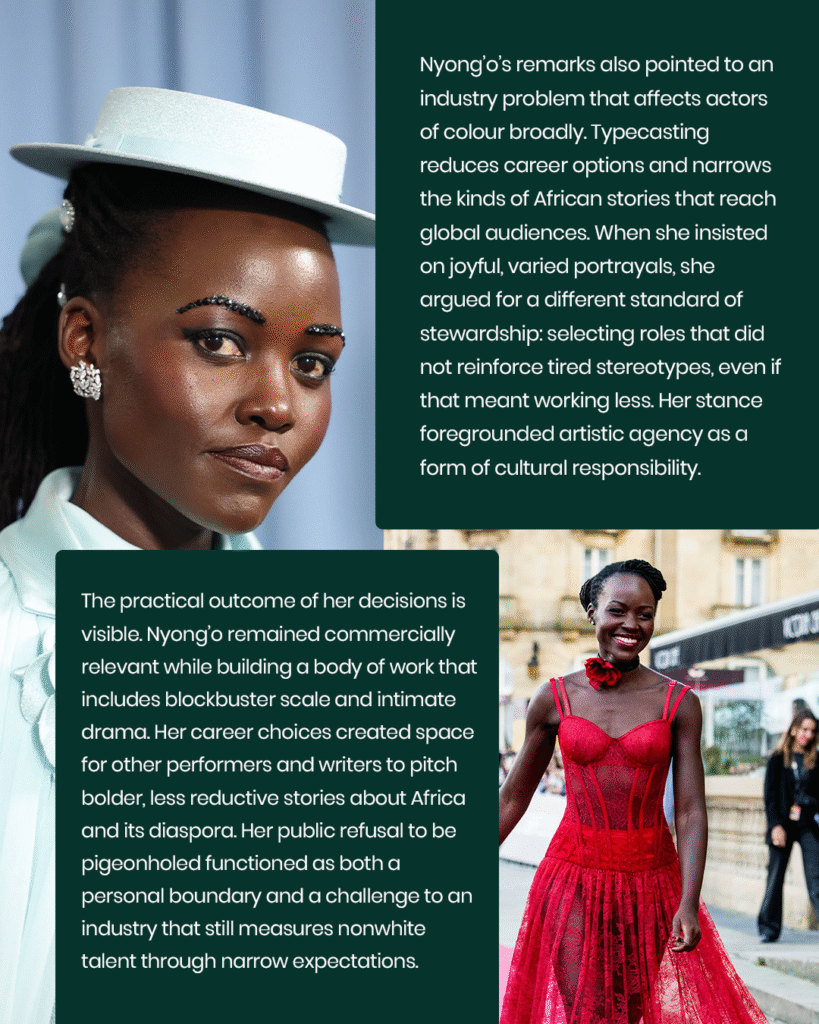
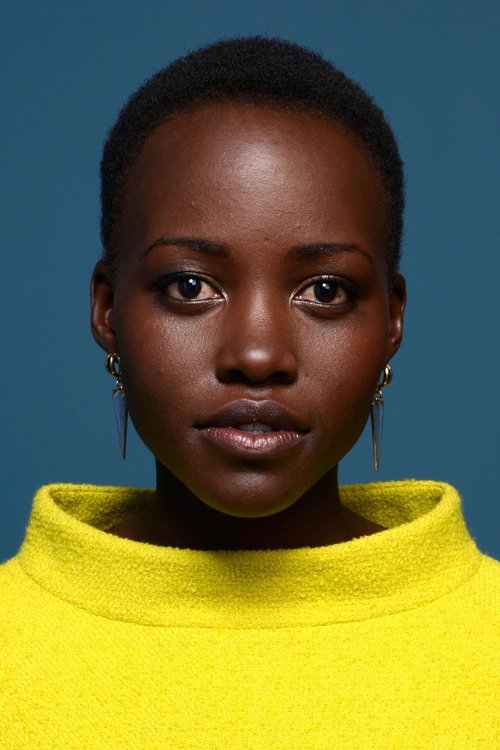
The practical outcome of her decisions is visible. Nyong’o remained commercially relevant while building a body of work that includes blockbuster scale and intimate drama. Her career choices created space for other performers and writers to pitch bolder, less reductive stories about Africa and its diaspora. Her public refusal to be pigeonholed functioned as both a personal boundary and a challenge to an industry that still measures nonwhite talent through narrow expectations.

